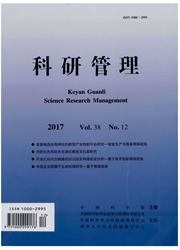

 中文摘要:
中文摘要:
知识持续性是组织可持续发展的前提,组织内不同代员工间的垂直型知识转移是实现知识持续性的关键。因而研究组织中年长员工(俗称老员工)参与代际知识转移的意愿变得很有意义。文章从社会情绪选择理论视角分析了人生意义的两个子构念(人生意义的追寻,人生意义的存在)与处在不同人生发展阶段(成年中期阶段,成年后期阶段)年长员工的代际知识转移意愿关系的差异。采用Smart PLS2.0对收集到的121份样本数据进行了分析,并对研究假设进行了检验。研究发现"人生意义的存在"与成年中期阶段和后期阶段员工的代际知识转移意愿都显著正相关,但与成年后期阶段员工的代际知识转移意愿相关性更强;"人生意义的追寻"与成年后期阶段员工的代际知识转移意愿没有显著相关关系,但与成年中期阶段员工的代际知识转移意愿显著正相关。研究结论能在一定程度上丰富现有代际知识转移的研究内容,并拓展传承理论内涵;同时还能够为组织知识的代际传承工作提供实践启示。
 英文摘要:
英文摘要:
Knowledge continuity is critical to organization sustainable development; and passing organizational knowledge from senior to younger employees is the key to successful knowledge continuity. Thus, it is necessary to conduct a study on the older employees' intention of participating in Intergenerational Knowledge Transfer (IGKT). From the perspective of Soeio-emotional Selectivity Theory, this study analyzes the different roles of two sub constructs of meaning in life ( the search for meaning in life, the presence of meaning in life) in IGKT intention of senior employees who are in different psychological developmental stages in life (middle adulthood, and late adulthood). Smart Pls 2.0 is used to analyze 121 samples to examine the proposed hypotheses. The results show that, the presence of meaning in life is positively related to IGKT intention of senior employees in middle adulthood and late adulthood, but it is more closely related to IGKT intention of the senior employees in late adulthood compared with senior employees in middle adulthood. The search for meaning in life is not significantly related to senior employees in late adulthood, but related to senior employees in middle adulthood. The findings enrich the current research of IGKT and generativity theory. They are also enlightening for the intergenerational knowledge transfer in organizations.
 同期刊论文项目
同期刊论文项目
 同项目期刊论文
同项目期刊论文
 期刊信息
期刊信息
